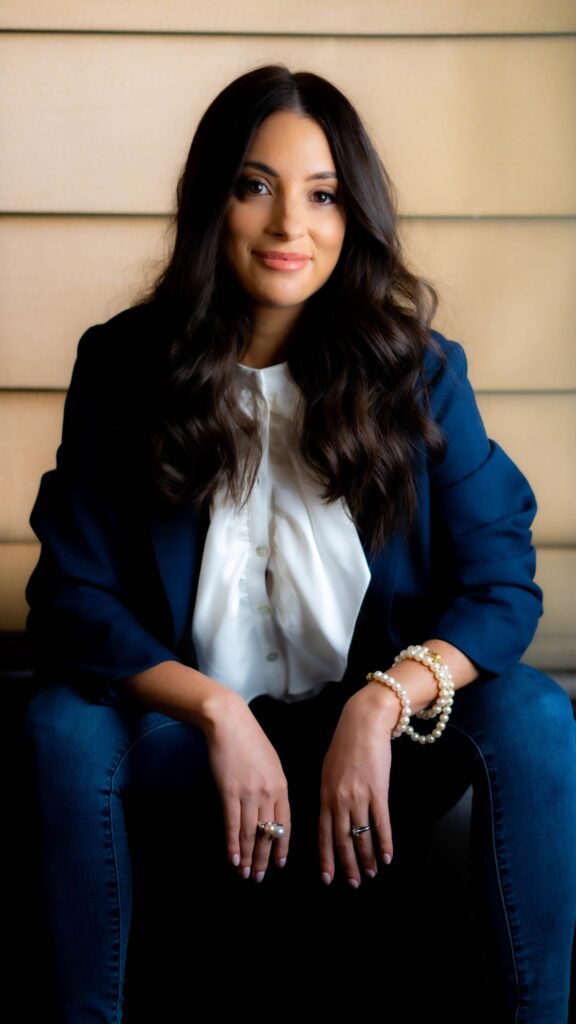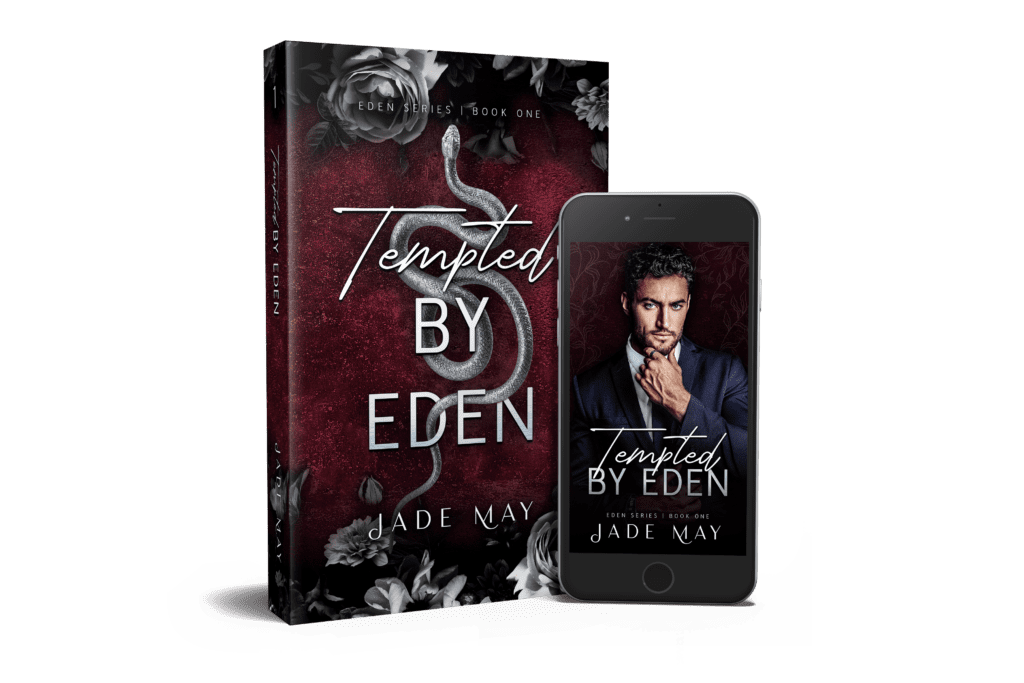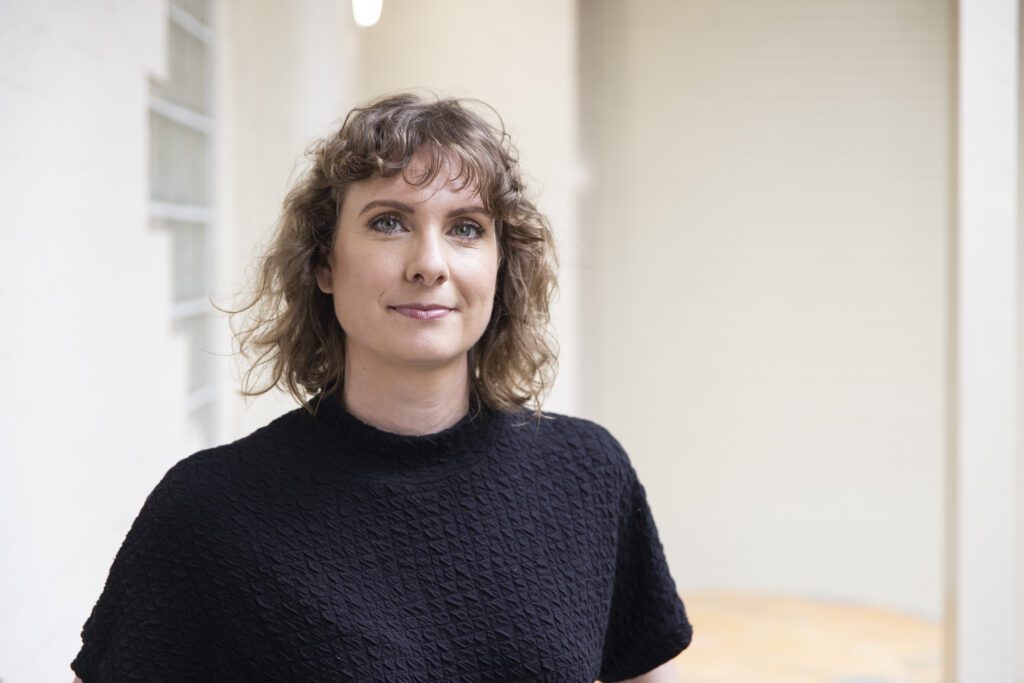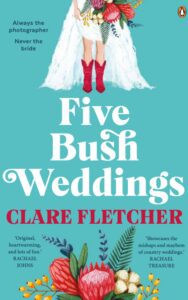Jade May is empowering her readers
This author of spicy contemporary romance is bringing pleasure out of the shadows.

Romance authors know all too well that writing about love and relationships will likely lead to a few dismissive remarks and suggestive comments. If your books rank on the higher end of the chilli-rating system, it’s a guarantee. But what these raised eyebrows and sleazy winks fail to acknowledge is the important role that the romance genre plays in making pleasure accessible.
I was at the Romance Writers’ Association conference in 2024 when bestselling writing duo Christina Lauren gave a rousing speech on how writing and reading romance is a feminist act: one of liberation, body empowerment and inclusivity. Author Jade May’s approach to writing spicy romance fiction echoes that important message.
Jade has Crohn’s disease, an autoimmune condition that not only flipped her world upside down, but disrupted her connection with her body and femininity. As she explains here, romance helped her find her way back to herself – and now she wants to help as many people as possible discover their own path to pleasure.
“I hope my novels offer readers a much-needed escape – a safe, empowering space where they can explore desires, fantasies, and kinks without fear of judgment,” Jade says. “I want my stories to be part of that larger fictional world where self-discovery and sexual liberation are celebrated, not shamed.”
I worked on the line and copyedit for the first two books in Jade’s Eden series – contemporary romances set in the high-stakes world of billionaires, starring strong, empowered women who work at a gentleman’s club called Eden. Yes, they’re seriously spicy, but they’re also funny, heartfelt, and deliciously propulsive.
Here, Jade opens up about her journey to writing spicy romance, what makes a great spice scene, and why her stories are designed to empower readers.
Jade, tell us a little bit about who you are and how you got into writing.
I’m an Australian spicy romance author living in sunny Sydney with my husband and our little whirlwind of a son. By day, I run my own business, and by night – when I’m not dozing off in front of the TV – I’m weaving angsty, steamy love stories.
I’m a Kindle junkie because, let’s face it, my tiny Sydney home doesn’t have room for a sprawling bookshelf. Dark romance is my favourite sub-genre, and I’ve always been a voracious reader.
I started writing during the COVID lockdowns – a way to express my creativity into something meaningful. What started as a personal project has now become my greatest passion, and I couldn’t be more excited to share my stories with all of you
How do you describe the stories you write?
I’d describe my stories as contemporary spicy romance – steamy, emotional, and full of heart. While the heat level is definitely high (and the scenes can get quite explicit), I wouldn’t call them erotica. For me, the spice is never the main event; it’s there to enhance the storyline, deepen the characters’ connections, and add that extra spark. It’s all about finding the perfect balance between passion and plot.
Tell us about your new release, Tempted by Eden, and the Eden series. What can readers expect from these stories?
The Eden series centres around the strong, independent women who work at Eden, a luxurious, exclusive brothel where control and desire intertwine, and the rich and famous indulge in their wildest fantasies. But Eden isn’t just about steamy encounters; it’s a world where secrets unravel, boundaries are tested, and true selves are revealed. As they navigate complex relationships, power struggles, and personal growth, they discover their happily-ever-afters with their irresistible alpha men. It’s a series of passion, betrayal, forbidden love, and self-discovery.
Tempted by Eden is the first book in this spicy interconnected standalone series, which releases on 19 February, 2025. It’s an enemies-to-lovers office romance with a touch of kink, a dash of angst, and an ending that will leave you swooning. Expect high heat, complex emotions, and kink-positive messages throughout the series.

Eden is a world where secrets unravel, boundaries are tested, and true selves are revealed.
Why were you drawn to writing spicy romance fiction?
I was diagnosed with Crohn’s disease at thirteen – right at the threshold of teenage life, when so much of your identity is shaped by the experiences you share with others. I spent a large part of those formative years in hospital, missing out on milestones that most teenagers take for granted. But during those long hospital days, I found solace in reading. Back then, I was a fantasy enthusiast, losing myself in epic tales of dragons, vampires, and werewolves.
As I got older, my tastes shifted toward romance – spicy, empowering, and unapologetically bold. These stories opened my eyes to the multifaceted power of womanhood – its beauty, messiness, and resilience. They gave me the courage to explore my own desires, understand what appealed to me sexually, and connect with my femininity in ways I’d never done before. Romance was the only genre I saw that was created by women, for women, with women placed unapologetically at the centre of the narrative and desire.
Spicy romance stories gave me the courage to explore my own desires, understand what appealed to me sexually, and connect with my femininity in ways I’d never done before.
Living with a chronic illness, I’ve often encountered the assumption that disabled people – whether their disabilities are visible or invisible – are somehow sexless or less-than. Romance fiction shattered that narrative for me. It reminded me that we all share the same desires, needs, and vulnerabilities, regardless of our physical limitations. That realisation was deeply empowering and gave me the confidence to embrace my identity fully.
Writing romance became a natural evolution of that journey. I wanted to create stories that offered the same kind of escape and self-discovery that reading gave me. Through my books, I hope to provide a safe space for women to explore their own desires and fantasies without judgment – while celebrating the messy, beautiful complexities of life, love, and everything in between.
While reading and writing spicy romances didn’t magically cure my health struggles, it gave me something equally valuable: a space to heal emotionally, rediscover my femininity, and feel truly seen.
People often dismiss romance as a genre, particularly erotic fiction. What’s your response to those who see romance as less worthy than other genres?
The numbers don’t lie – romance is one of the most profitable fiction genres, generating around $1.44 billion in sales annually in the US. Clearly, there’s a massive appetite for it, and for good reason. Romance provides an escape, a refuge in a world that often feels chaotic and challenging. It’s a genre that champions sexual liberation, self-discovery, and human connection.
For me, writing Tempted by Eden was deeply inspired by themes of self-discovery, feminism, and sexual liberation. It’s my hope that my books not only entertain but also provide that same safe space for others to embrace every part of who they are. Romance is anything but “less worthy” – it’s transformative.
Your books also explore themes around the stigma sex workers face, and even though your female characters play submissive roles with their partners, they are strong, independent women. Is it important to you as a writer to portray sex-positive and feminist characters?
Absolutely. I aim to emphasise that submission in a relationship or in the bedroom is a choice – a consensual, empowering one – and it’s not a reflection of weakness or lack of independence. My female characters are strong, self-assured, and know exactly what they want. They communicate their needs, assert their desires, and actively participate in creating dynamics that work for them. In fact, in any submissive relationship, the submissive partner holds immense power because they set the boundaries and ensure they are respected.
The most important takeaway I want readers to have is that kink, including BDSM, is a personal and erotic choice – one grounded in consent, trust, and mutual respect. There’s a misconception that engaging in BDSM, especially as a submissive, somehow negates your feminist values. That couldn’t be further from the truth. Feminism is about choice – the freedom to live authentically and pursue what fulfills you, whether that involves submitting to a partner in an intimate context or not.
It’s also essential to highlight that submission is about communication, having your needs heard, and creating an environment where you feel safe and valued, regardless of your partner’s gender or identity. My stories aim to challenge the stigma surrounding these dynamics while celebrating empowered, sex-positive women navigating their own paths with confidence and agency.
Let’s talk about the craft side of it: Your books have some seriously hot spice scenes, which is a real skill! Have you always been good at writing spice or did you have to work at it?
Spice is definitely something that has come naturally to me – it’s like my comfort zone when writing. The emotions, the tension, the connection – it all flows so easily. Honestly, it’s everything else that takes work! Crafting a strong plot, developing complex characters, and ensuring all the threads come together seamlessly? That’s where I’ve put in the hours. But the spice? That’s where I get to let loose and have fun.
Write from a place of genuine emotion and connection. Spice isn’t just about the physical – it’s about the tension, the longing, and the intimacy between the characters. Focus on how the scene propels the relationship forward.
What advice would you give other authors for writing spice?
I wish I could give a detailed roadmap for writing great spice, but for me, it’s something that flows naturally – I just sit down and let the words take over. That said, I do have to be in the right mindset for it. If I’m not in the mood, the spice won’t translate well on to the page, so I don’t force it. Sometimes, I avoid writing those scenes altogether during certain parts of the month when I’m not feeling it.
If I had to give advice, I’d say this: write from a place of genuine emotion and connection. Spice isn’t just about the physical – it’s about the tension, the longing, and the intimacy between the characters. Focus on how the scene propels the relationship forward or reveals something new about the characters.
Ultimately, the best spice comes when you’re enjoying the process. So set the mood, let go of any pressure, and write what feels authentic to your story.
Tell me a bit about your writing process. Do you have a writing routine that you follow? How do you keep your ideas and words flowing?
Honestly, this is something I’m still figuring out! I haven’t quite nailed down a writing routine that works perfectly for me. Up until now, my writing has fit in around my health, family, and business – they always come first. I’m currently experimenting with different approaches to see what sticks and what feels sustainable long-term.
One of my biggest challenges is being a perfectionist. I constantly want to edit and refine as I go, which slows down my progress and sometimes keeps me stuck in the same place. This year, I’m trying something new: writing sprints and committing not to edit or rewrite until I’ve hit 20,000 words. It’s a way to let the story flow and keep myself moving forward.
I think the key is to stay flexible and patient with yourself. Writing is a creative and personal process, and what works for one person might not work for another. It’s all about finding your rhythm and allowing yourself the grace to adjust as you go.
What’s your favourite writing craft tip or mantra?
My favourite writing mantra is: Don’t force it. If you’re not feeling it, step away. Writing when you’re uninspired often leads to work that doesn’t feel authentic – and more often than not, you’ll end up rewriting it later. Let the ideas come naturally, and when you’re in the right mindset, the words will flow and truly resonate on the page. Writing should feel like a connection, not a chore.
I really enjoyed copyediting two of your books last year and especially loved the humour and depth you injected into your stories – the characters are really relatable and vibrant. You also have a great sense of how to pull readers through a book. How important is editing to your process?
Thank you so much – you’re too kind! It’s funny you mention the humour because I never intentionally set out to inject it into my books, but it somehow sneaks in through my writing style. I guess it’s just a natural part of how I tell stories!
Editing, though, is absolutely fundamental to my process – it’s where the magic really happens. I usually start with a first draft to get the story down, then move on to a second draft to polish and refine. After that, it’s off to developmental editing, where I make sure the structure and characters are as strong as they can be. Then comes another round of revisions, followed by line and copyediting to tighten the prose and perfect the details. Finally, I wrap it all up with proofreading to catch any lingering errors.
Each stage of editing is critical, and I truly believe it’s what transforms a story into something special. It’s hard work, but seeing the final result – something I’m proud to share with readers – makes it all worth it.
Can you tell us what you’re working on at the moment?
Right now, I’m deep into the third book of the Eden series – but it’s all under wraps for now! I can’t share too much just yet, but what I can promise is the same signature mix of heat, emotion, and angst from my other books. Stay tuned – this one’s going to be worth the wait.
Finally, where can we buy your books and follow your author journey?
You can grab Tempted by Eden on Kindle Unlimited from 19 February. Seduced by Eden is available at all online retailers for pre-orders and will release on 21 May. After its release, it will move exclusively to Amazon – so don’t miss your chance to snag it on other platforms. For collectors, my special limited-edition foil hardbacks, printed in stunning full colour, are available on my website – they’re absolutely gorgeous!
Stay connected and follow my author journey on Instagram, TikTok, Threads, and Facebook: @authorjademay. Join my reader group, Jade May’s Manor, or sign up for my newsletter to stay in the loop and get exclusive updates.
PS: Writers, if you’d like to chat about line and copyediting for your romance, drop me a line for a free sample edit and Zoom call.






